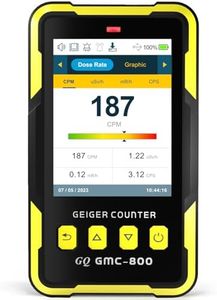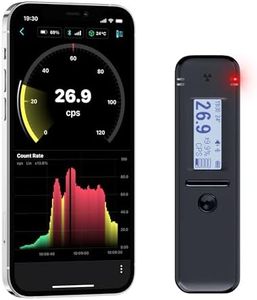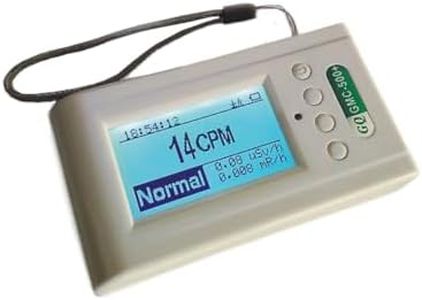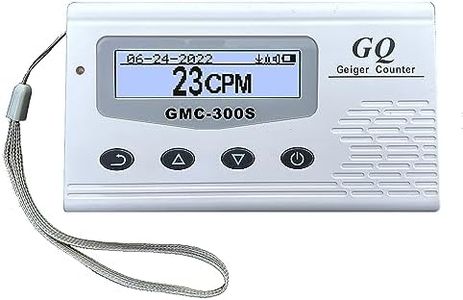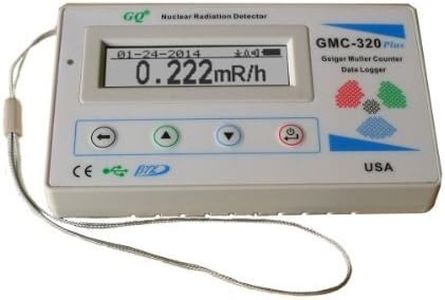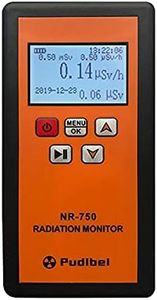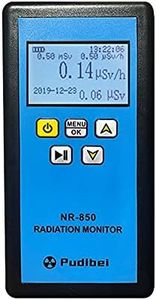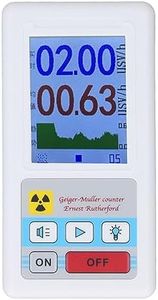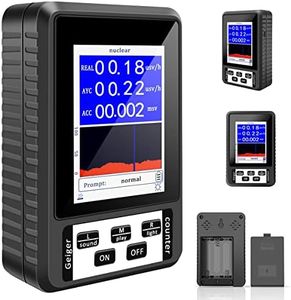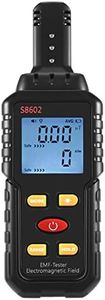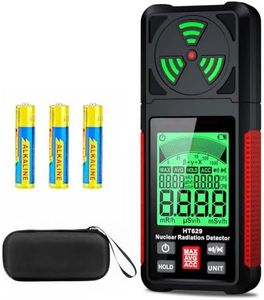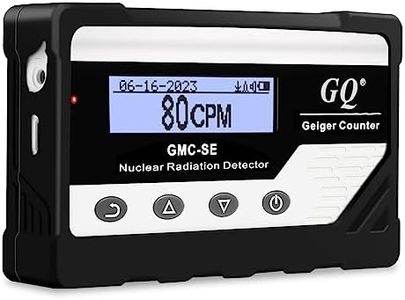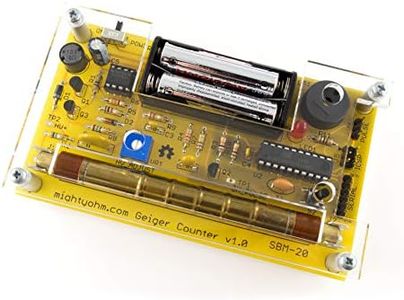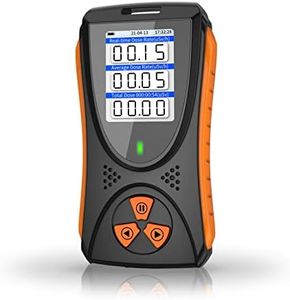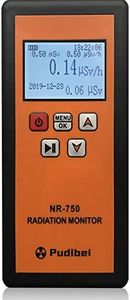We Use CookiesWe use cookies to enhance the security, performance,
functionality and for analytical and promotional activities. By continuing to browse this site you
are agreeing to our privacy policy
10 Best Geiger Counters
From leading brands and best sellers available on the web.By clicking on a link to a third party's website, log data is shared with that third party.
Buying Guide for the Best Geiger Counters
Choosing the right Geiger counter is mainly about understanding how you plan to use it, and matching the device to your needs. A Geiger counter detects different kinds of radiation, and the best choice depends on whether you want something for casual at-home use, professional fieldwork, or more specialized experiments. When comparing models, you should consider key specifications that relate to accuracy, sensitivity, ease of use, portability, and data handling.Radiation Detection TypesThis specification tells you which kinds of radiation the Geiger counter can detect, usually alpha, beta, gamma, and sometimes X-rays. It is important because not all Geiger counters pick up every type of radiation. If you are just measuring background radiation or checking items, a device that detects beta and gamma is often enough. For more comprehensive monitoring, especially in professional or research settings, you'll want one that also picks up alpha particles. Always check which types you need to track, as your use case—like household safety or environmental testing—should guide your choice.
Sensitivity and Measurement RangeThe sensitivity and the detection range define how small or large amounts of radiation your Geiger counter can measure. This is important as some tasks require detection of very low levels (like background radiation), while others might need to handle high levels (for contaminated sites). Devices are typically divided into low-sensitivity (for only high radiation), medium-sensitivity (good for general use), and high-sensitivity models (good for fine measurements and scientific purposes). Consider what radiation levels you expect to encounter: for home or educational use, a medium sensitivity is usually sufficient. For scientific monitoring, go for higher sensitivity.
Display and Readout OptionsGeiger counters come with different types of displays—some just blink or click, while others have digital screens showing counts per minute (CPM), microsieverts per hour (µSv/h), or other units. This matters because clear readouts make it easier to understand what you’re detecting. Simple indicators are good for quick checks, but for ongoing measurement, logging, or comparing results, a digital display with clear numbers is best. Decide how much detail and clarity you need in daily use.
Size and PortabilityThe physical size and portability dictate how easy the Geiger counter is to carry around or deploy. Some are small and pocket-sized, great for handheld checking, while others are larger with more features for stationary use. If you need to measure on the go or in fieldwork, choose a lightweight, portable model. If your use is in a laboratory or fixed area, a larger device could offer more functions without worrying about portability.
Battery Life and Power SourceThis specification covers how long the device can run before needing fresh batteries or a recharge. It’s important because you don’t want your Geiger counter to stop working in the middle of use, especially if you’re in the field or tracking changes over a long period. Generally, longer battery life is better for extended outdoor or remote use, while frequent access to power means you can choose a model with shorter battery life. Think about how often you’ll use it and where—you can pick according to your practical needs.
Data Logging and ConnectivitySome Geiger counters can store readings over time or connect to a computer or mobile device to download data. This matters for those who want to track changes, create reports, or analyze measurements. Basic models might not have this at all, mid-range ones may store a few readings, and advanced units can log lots of data and connect to apps or PCs. If you care about recording and analyzing information, pick a model with these capabilities; if you just need spot checks, this may be less important.
